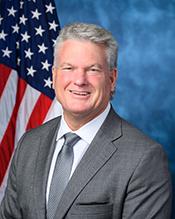0
0
0
WING Act of 2023
1/11/2024, 8:26 PM
Summary of Bill HR 3764
Bill 118 hr 3764, also known as the WING Act of 2023, is a piece of legislation currently being considered by the US Congress. The purpose of this bill is to provide funding and support for programs that aim to protect and conserve migratory bird populations in the United States.
The WING Act of 2023 includes provisions for increasing funding for research and monitoring of migratory bird populations, as well as for habitat conservation and restoration efforts. The bill also seeks to enhance collaboration between federal, state, and local agencies, as well as non-profit organizations, in order to better coordinate conservation efforts.
Additionally, the WING Act of 2023 includes measures to address threats to migratory birds, such as habitat loss, climate change, and pollution. The bill aims to strengthen enforcement of existing laws and regulations that protect migratory birds, as well as to develop new strategies for mitigating these threats. Overall, the WING Act of 2023 is a comprehensive piece of legislation that seeks to address the challenges facing migratory bird populations in the United States. If passed, this bill has the potential to make significant strides in protecting and conserving these important species for future generations.
The WING Act of 2023 includes provisions for increasing funding for research and monitoring of migratory bird populations, as well as for habitat conservation and restoration efforts. The bill also seeks to enhance collaboration between federal, state, and local agencies, as well as non-profit organizations, in order to better coordinate conservation efforts.
Additionally, the WING Act of 2023 includes measures to address threats to migratory birds, such as habitat loss, climate change, and pollution. The bill aims to strengthen enforcement of existing laws and regulations that protect migratory birds, as well as to develop new strategies for mitigating these threats. Overall, the WING Act of 2023 is a comprehensive piece of legislation that seeks to address the challenges facing migratory bird populations in the United States. If passed, this bill has the potential to make significant strides in protecting and conserving these important species for future generations.
Congressional Summary of HR 3764
Weather Innovation for the Next Generation Act of 2023 or the WING Act of 2023
This bill directs the National Weather Service to establish a temporary research, development, test, and evaluation program to ensure that weather radar detection and prediction capabilities continue to perform despite physical obstructions in their line of sight (e.g., wind turbines).
Read the Full Bill
Current Status of Bill HR 3764
Bill HR 3764 is currently in the status of Bill Introduced since May 31, 2023. Bill HR 3764 was introduced during Congress 118 and was introduced to the House on May 31, 2023. Bill HR 3764's most recent activity was Referred to the House Committee on Science, Space, and Technology. as of May 31, 2023
Bipartisan Support of Bill HR 3764
Total Number of Sponsors
1Democrat Sponsors
0Republican Sponsors
1Unaffiliated Sponsors
0Total Number of Cosponsors
8Democrat Cosponsors
0Republican Cosponsors
8Unaffiliated Cosponsors
0Policy Area and Potential Impact of Bill HR 3764
Primary Policy Focus
Science, Technology, CommunicationsAlternate Title(s) of Bill HR 3764
WING Act of 2023
WING Act of 2023
Weather Innovation for the Next Generation Act of 2023
To amend title IV of the Weather Research and Forecasting Innovation Act of 2017 to research the impact of obstructions on radar detection and prediction capabilities, and for other purposes.
Comments
Sponsors and Cosponsors of HR 3764
Latest Bills
Providing amounts for the expenses of the Committee on Ethics in the One Hundred Nineteenth Congress.
Bill HRES 131December 12, 2025
Providing for congressional disapproval under chapter 8 of title 5, United States Code, of the rule submitted by the Bureau of Land Management relating to "Central Yukon Record of Decision and Approved Resource Management Plan".
Bill HJRES 106December 12, 2025
Expressing the sense of the House of Representatives in condemning the Government of the People's Republic of China for its harassment and efforts to intimidate American citizens and other individuals on United States soil with the goal of suppressing speech and narratives the People's Republic of China finds unwelcome.
Bill HRES 130December 12, 2025
Providing for congressional disapproval under chapter 8 of title 5, United States Code, of the rule submitted by the Bureau of Land Management relating to "North Dakota Field Office Record of Decision and Approved Resource Management Plan".
Bill HJRES 105December 12, 2025
Providing for congressional disapproval under chapter 8 of title 5, United States Code, of the rule submitted by the Bureau of Land Management relating to "Miles City Field Office Record of Decision and Approved Resource Management Plan Amendment".
Bill HJRES 104December 12, 2025
Providing amounts for the expenses of the Select Committee on the Strategic Competition Between the United States and the Chinese Communist Party in the One Hundred Nineteenth Congress.
Bill HRES 104December 12, 2025
Critical Access for Veterans Care Act
Bill S 1868December 12, 2025
OATH Act of 2025
Bill S 1665December 12, 2025
A bill to extend the authority for modifications to the Second Division Memorial in the District of Columbia.
Bill S 1353December 12, 2025
Saving Our Veterans Lives Act of 2025
Bill S 926December 12, 2025




